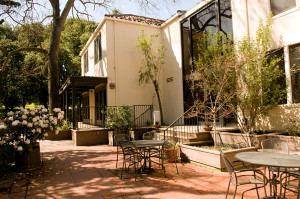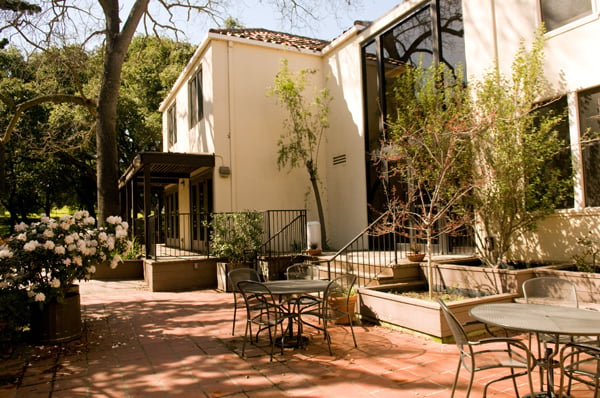While his peers worry about what major to declare or their summer plans, Peter Moon ’15 currently faces a different, more complicated decision — whether he will serve in the South Korean military, and when.

A dual American-South Korean citizen, Moon — among fellow undergraduates — anticipates serving in the South Korean military in order to maintain his South Korean citizenship status. He is currently deciding whether he will take time off during his undergraduate career or immediately following his senior year to serve.
South Korea requires all male citizens to serve at least 21 months in the military sometime between the ages of 18 and 35. Under Article 88 of the Military Service Act of 2003, the punishment for refusing to serve is up to three years in prison or, for dual citizens, loss of South Korean citizenship status.
John Pearson, director of the Bechtel International Center, said that students from other countries, including Singapore, Turkey and Israel, have often served compulsory military service before they come to Stanford as freshmen.
“[South Korea] is the country where we see students…have a break in their studies and then come back,” he said.
According to Pearson, the University does not keep track of how many students leave specifically to meet compulsory military service requirements.
Choosing to serve now or later
Because of the age window, college-age South Koreans must choose whether they will suspend their undergraduate work or their post-graduation academic and professional careers to serve in the South Korean army.
Many Korean students at Stanford, including Jeong Soo Sim ’15, Wan Jin Park ’14 and Jichan Park ’15, choose to take a leave of absence in the middle of their undergraduate years, believing that taking time off then would be less disruptive than a two-year break after graduation.
“After spending a couple of years at Stanford, I thought that if I go later in my life, it’s going to cost more — the loss of time — in my career, or academic career, or any path I choose,” Sim said, “So I chose to go as early as possible.”
For Moon, the flexibility of undergraduate coursework might make the earlier interruption easier in terms of academic continuity than it would be later in academia.
“As a premed student, going away for two years…is pretty big because you have to learn study habits again [and] you have to learn to function in society again, and med school isn’t the ideal place to start something fresh,” Moon said. “[If I go] after this year…I can get it over with and then come back.”
Pearson, on the other hand, finds the interruption during undergraduate years more taxing.
“If you do leave during your studies, to go back — it’s quite a challenge,” Pearson said.
“You have a significant break in your studies,” he said. “You’re going to do something that’s very very different than what you’re doing at Stanford…You have the two adjustments: one is leaving here and going to do military service, and two [is] military service back to here.”
Moon discussed the additional social pitfalls of becoming disconnected with your social community at Stanford that results from serving during undergraduate years.
“If I go after this year, then all of my friends will have graduated before I come back,” Moon said. “The pro of going after college is, of course, that your social life isn’t as affected.”
Transitioning back to the Farm
While they agreed that the disruption in the middle of their Stanford careers prompted a different experience, Wan Jin, Jichan and Sim said that it wasn’t too difficult to settle back into the Stanford community.
Wan Jin Park entered Stanford with the Class of 2012 and will graduate with the Class of 2015. Having left school after Fall Quarter in 2011, Wan Jin served as an interpreter at the headquarters for U.S. forces stationed in South Korea for 21 months. He is currently completing his second quarter back at school.
“At first, it’s definitely weird. At the same time it’s also exciting in a way because it’s like being a freshman again, because you have to meet new friends and join new students groups,” Wan Jin said. “That’s definitely a lot of fun.”
Chang Whan Yea, who also came to Stanford as a member of the Class of 2012, left Stanford in the fall of 2011 after his junior year. He is currently working as an air traffic controller and a Korean Augmentation to the United States Army (KATUSA) soldier.
“If you are under conscription, then try to make the most out of it,” Yea said, “And I’d say try to apply as early as possible. It’s a great experience, and if you’re going to do it, it’s better to do it when you’re young.”
Yea spoke of how physically and emotionally challenging basic training was, particularly in comparison to his life at Stanford.
“Basic training was a huge eye opener for me,” Yea said. “I didn’t have a name back then. I was just a number, my trainee number.”
Admitted with the Class of 2013, Jichan left Stanford after the fall of his sophomore year, served at a South Korean military base in Yangju for 21 months and is now finishing his first quarter back.
“Stanford’s environment is very free and you get to do whatever you want, but obviously in the army you have to get used to the strict schedules and hierarchies,” Jichan said, “It’s a cultural challenge, and [an] emotional challenge as well.”
Sim, who began his Stanford career in the Class of 2012, served as an interpreter for KATUSAs between his sophomore and junior year, and returned to the Farm in the fall of 2012.
“Since it’s an extreme experience for an individual, it certainly gives me some kind of experience that will live [with me],” Sim said, “It kind of makes me think I can do anything that is easier than the army.”
As Moon prepares for his upcoming service, he anticipates a unique learning experience.
“[I look forward to] understanding the meaning of community and understanding what it really means to serve other people — not just in a superficial sense, but in a meaningful way,” Moon said, “Of course its gong to be difficult — physically, mentally. But I feel like those things would really help me grow as a person.”
